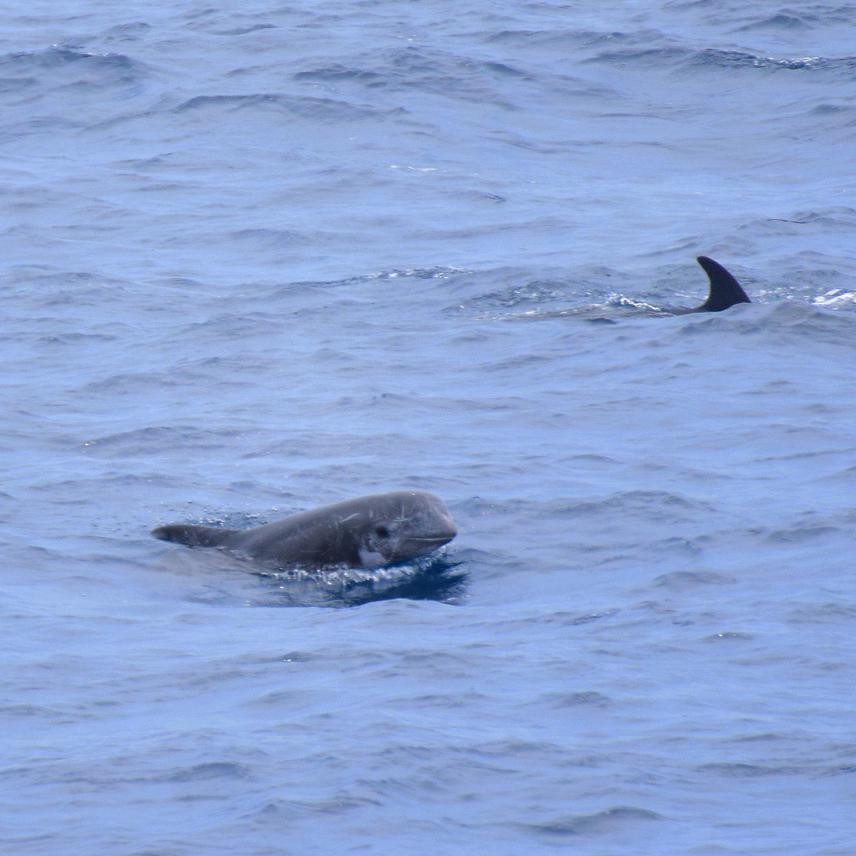Article on Conservation India website.
Mahi Mankeshwar
This projects aims at building the first data set on the diversity, abundance and seasonal movements of cetaceans from the waters of Andaman Islands. Combining vessel based systematic transects and data from the community based monitoring program started in 2016 a foundation dataset will be created based on which future ecological and conservational work can be carried out. By involving the island based communities in this long-term study we wish to slowly create sound and long-lasting awareness about these animals of the Andaman Sea.

Risso's dolphin on one of the ferry surveys of South Andaman. ©Sagar Rajpurkar
The Andaman and Nicobar Archipelago in northeast Bay of Bengal is a global Biodiversity Hotspot, but knowledge on cetacean diversity and distribution is known only through opportunistic records of sightings and carcasses washed ashore. 10 species of cetaceans have been reported opportunistically from the region, but no information is available on their population status.
The biogeographic location of the archipelago in the Andaman seas, makes these waters more likely to inhabit species found more in the southeast Asian seas, or could be a zone where overlap between sub-populations takes place. Studying cetacean species and their sub-populations is thus of prime importance for taxonomical studies.
In the backdrop of data deficiency on the status of cetaceans this study is a first attempt to fill that gap. Through systematic vessel based surveys we will create a baseline data-set on cetacean diversity, abundance and their space use in the South-Andaman region. This study will provide us with information of multiple species based upon which priority species can be selected to carry out future investigation.
Through this study we will also strengthen and continue our previously set monitoring program with the communities of the islands. The monitoring data will help us acquire more information from other areas across the extensive chain of islands and keep the communities involved in the study. To further engage and raise awareness, workshops covering various topics of cetacean studies will be undertaken within the communities. Through workshops across the various stakeholder communities we will also initiate the first cetacean stranding network and impart among the locals the knowledge to effectively respond to a cetacean stranding situation on the islands.